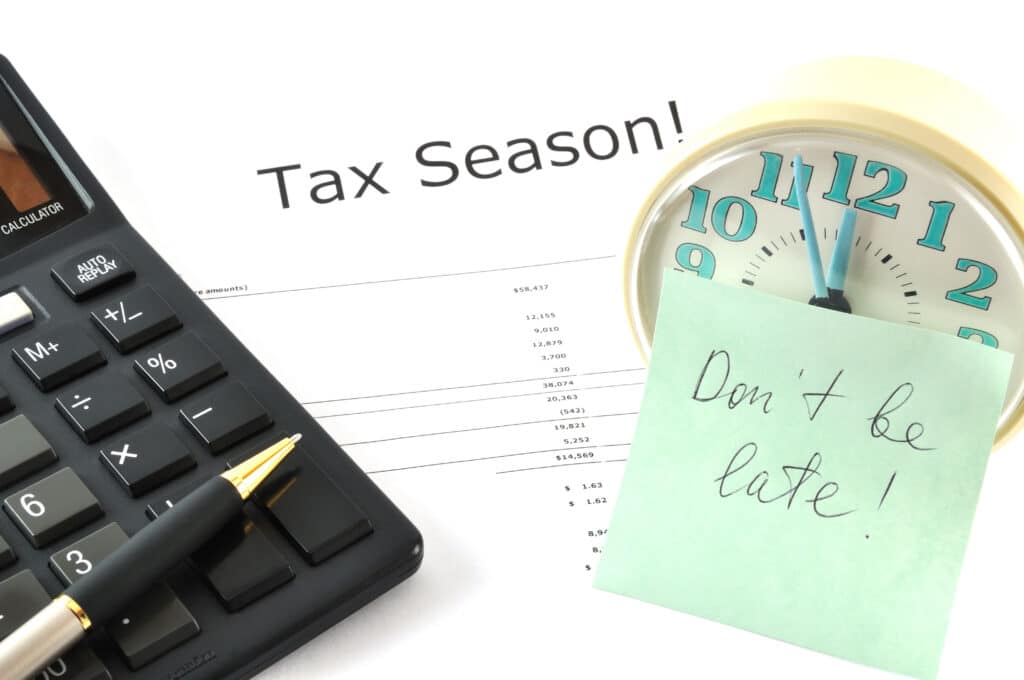In the world of legal cannabis, taxes have become a significant burden for companies, especially when competing with the black market. Many businesses struggle to meet the high tax requirements imposed by governments, putting their financial viability at risk. Santa Barbara County in California has recently taken an extreme approach to revenue collection by implementing a ‘death penalty’ tax structure. Under this system, companies must pay their taxes promptly or face license revocation.
*This article contains the opinion of the writer on issues related to cannabis taxation, specifically focusing on Santa Barbara County and its recent implementation of a death penalty tax provision.
The Latest Death Penalty Tax Laws in Santa Barbara
According to a report by High Times, the new cannabis death penalty law in Santa Barbara County was introduced on June 27th, 2023, by the Santa Barbara County Board of Supervisors. The new measure imposes harsher penalties on companies that fail to pay their taxes on time. Starting from August, the county can take action against businesses that have not paid their taxes and have not filed the required paperwork within the 30-day grace period. Non-compliant operators risk losing their licenses.
The unanimously approved provision aims to strengthen and streamline the tax collection system by introducing stricter penalties to deter non-compliance. During the meeting, Deputy County Executive Officer Brittany Odermann stated, “This is a severe measure. If you’re late… You cannot renew.” This concept of a ‘death penalty’ is meant to illustrate the severe consequences faced by companies that fail to meet their tax obligations.
During a previous meeting on June 6th, it was reported that 12 licensed operators had not paid their taxes by the April 30th deadline. Although three of them eventually filed their taxes between April 30th and June 6th, these late payments highlighted the growing number of non-compliant operators. Quarterly tax payments are due four times a year: at the end of January, April, July, and October.

The system includes an automatic 30-day grace period. For instance, if a business is required to pay by June 30th, they will automatically have until July 29th to make the payment. After this date, the payment is considered delinquent, but still legally enforceable. The concept of the ‘death penalty’ comes into effect after the 30-day grace period expires.
Is the Death Penalty Tax Supported by Everyone in Santa Barbara?
A recent report by cannabis consulting company Whitney Economics reveals that the tax situation is challenging for all cannabis operators, primarily due to federal taxes that disallow deductions for basic expenses. According to the report, only 24% of businesses reported making a profit last year, raising concerns about their ability to fulfill substantial tax obligations while struggling to stay afloat.
However, not everyone in Santa Barbara County agrees with the introduction of the death penalty tax provision. Steve Lavagnino, the 5th District Supervisor, opposes the measure and stated, “This is not the way that we collect taxes in the county. I think we’ve gone from a kind of slap on the wrist to a death penalty. That would be like if you’re one day late on your TOT [transient occupancy tax], you have to shut your hotel down, or if you’re one day late on your property taxes, you gotta move out of your house.”
Lavagnino raises a valid point about the severity of the consequences. Enforcing such strict penalties may result in the immediate loss of assets, companies, and jobs for those struggling to meet their tax obligations. He emphasized that the intention behind requesting harsher penalties was to ensure tax payment compliance, not to force businesses out of operation. Lavagnino added, “Our intention is to get somebody to pay the tax. I would hope that we could come up with something that is the intent of what we’re trying to do.”
Das Williams, the 1st District Supervisor, shared similar views and questioned the need for alternative payment methods. He asked, “Is there any other option? Can people essentially prepay their cannabis taxes to be out of this quarterly jeopardy? If our goal is remedy and better collection, then why wouldn’t we allow people to pay their taxes ahead of time?”
The Reality of Cannabis Taxation
This is not the first time Santa Barbara County has faced criticism regarding its cannabis regulatory laws. In 2020, a Santa Barbara Grand Jury, tasked with overseeing county agencies, expressed concern that board members allowed cannabis operators to dictate policy without considering the end-users. The oversight body received numerous requests to investigate the board’s conduct in relation to this issue.

The entire cannabis industry in California has faced significant challenges, from strict regulations to high taxes and issues related to overproduction. These factors have made survival difficult for operators in the industry. Last year, the state attempted to alleviate some of the pressures by restructuring its tax system. However, the most burdensome tax, the sin excise tax, remained unchanged. Almost a year after implementing the new policies, little improvement has been observed, even though the cultivation tax was eliminated.
The restructuring of taxes proved ineffective, as it failed to address the fundamental issue. Instead of exploring realistic and workable solutions, the focus shifted towards combating corruption within the industry. A Los Angeles Times article from March states, “State officials are launching an audit aimed at curtailing bribery, conflicts of interest, and other misdeeds.” Rather than acknowledging the unworkable situation created by excessive taxes and regulatory requirements, the government opted to punish operators who may have resorted to questionable practices in their struggle to survive. It is important to note that not all operators engaging in shady business practices are part of the black market.
In challenging times, it is common for businesses to resort to riskier strategies to stay afloat. This is a basic principle of survival, which is exemplified in the struggling California cannabis industry. Unfortunately, this reality seems to be overlooked by the new measures implemented in Santa Barbara County. State auditors plan to select six jurisdictions with licensed cannabis businesses to review their permit approval process, focusing on local governments plagued by corruption allegations. This approach fails to address the simplicity of the issue and instead focuses on punishing operators for trying to navigate an untenable situation. It is crucial to recognize that not all non-compliant business practices are inherently linked to the black market.
Similar Measures in Canada
Canada is also grappling with tax-related issues in its cannabis industry. Legal companies are struggling to pay their excise taxes, primarily due to financial constraints rather than unwillingness to pay. In May, the Canada Revenue Agency announced its intention to pursue unpaid excise taxes from cannabis producers. The introduction of these measures implies a desperate attempt to collect revenue as the Canadian cannabis industry continues to face challenges without a long-term, workable solution.
Similar to Santa Barbara County, Canada is also employing harsh tactics, including garnishment, property and equipment liens, and legal action, to deal with non-compliant businesses.

Canada’s excise tax laws state, “If a corporation fails to pay any duty or interest as and when required…the directors of the corporation at the time it was required to pay…are jointly and severally…liable, together with the corporation, to pay.” The Canada Revenue Agency issued warnings to businesses, such as the one mentioned above, indicating potential enforcement of the Cannabis Duty provisions of the Excise Act, 2001. Due to concerns surrounding ongoing issues, the business that received the warning prefers to remain anonymous as it seeks to resolve its outstanding tax obligations with the Canadian government.
It is important to note that the term ‘excise tax’ for cannabis is essentially synonymous with ‘sin tax.’ Sin taxes are extra taxes imposed on products based on the perception that they can be harmful or pose societal risks. While excise taxes are not uncommon, sin taxes are considerably higher and are often implemented to generate substantial revenue. Therefore, it is crucial to discuss the fairness of such high taxes and the financial burden they place on companies.
In conclusion, when businesses are unable to pay taxes, it is usually because they lack the financial means to do so. Santa Barbara County’s new death penalty tax law may address small instances of non-compliance, but without a realistic examination and improvement of the tax system’s functionality (which has yet to occur in the cannabis industry), significant change is unlikely to occur. Thank you for reading Cannadelics.com, a news site dedicated to independent reporting on cannabis and psychedelics. Visit us regularly for updates and sign up for the Cannadelics Weekly Newsletter to stay informed about the latest news and promotions.


